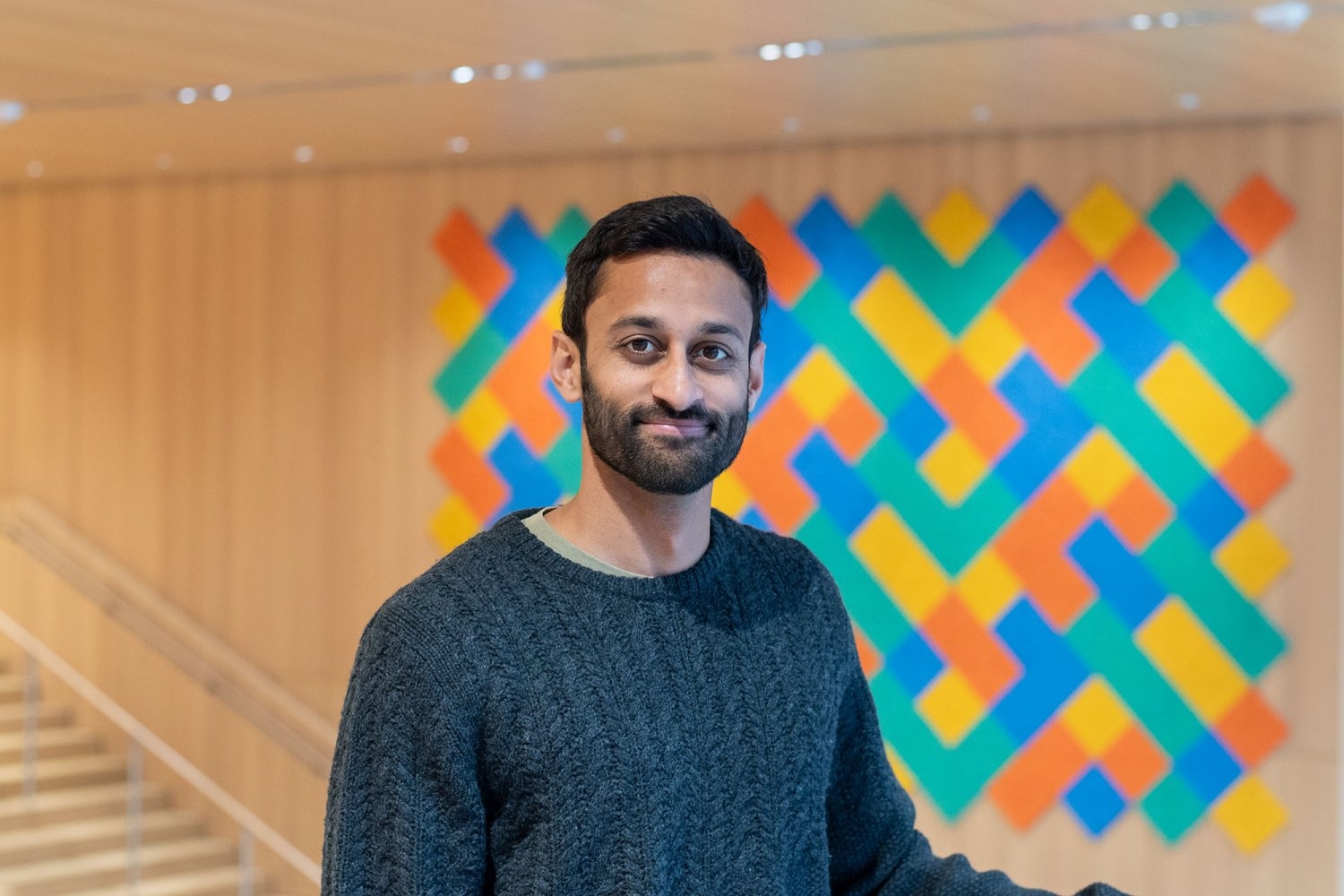
Amid the advantages that algorithmic decision-making and synthetic intelligence supply — together with revolutionizing pace, effectivity, and predictive potential in an unlimited vary of fields — Manish Raghavan is working to mitigate related dangers, whereas additionally looking for alternatives to use the applied sciences to assist with preexisting social issues.
“I in the end need my analysis to push in the direction of higher options to long-standing societal issues,” says Raghavan, the Drew Houston Profession Growth Professor in MIT’s Sloan College of Administration and the Division of Electrical Engineering and Pc Science and a principal investigator on the Laboratory for Data and Resolution Methods (LIDS).
A superb instance of Raghavan’s intention might be present in his exploration of the use AI in hiring.
Raghavan says, “It’s laborious to argue that hiring practices traditionally have been significantly good or price preserving, and instruments that study from historic knowledge inherit the entire biases and errors that people have made up to now.”
Right here, nevertheless, Raghavan cites a possible alternative.
“It’s at all times been laborious to measure discrimination,” he says, including, “AI-driven programs are typically simpler to watch and measure than people, and one aim of my work is to know how we would leverage this improved visibility to give you new methods to determine when programs are behaving badly.”
Rising up within the San Francisco Bay Space with mother and father who each have pc science levels, Raghavan says he initially wished to be a health care provider. Simply earlier than beginning faculty, although, his love of math and computing known as him to comply with his household instance into pc science. After spending a summer season as an undergraduate doing analysis at Cornell College with Jon Kleinberg, professor of pc science and data science, he determined he wished to earn his PhD there, writing his thesis on “The Societal Impacts of Algorithmic Resolution-Making.”
Raghavan received awards for his work, together with a Nationwide Science Basis Graduate Analysis Fellowships Program award, a Microsoft Analysis PhD Fellowship, and the Cornell College Division of Pc Science PhD Dissertation Award.
In 2022, he joined the MIT college.
Maybe hearkening again to his early curiosity in drugs, Raghavan has achieved analysis on whether or not the determinations of a extremely correct algorithmic screening instrument utilized in triage of sufferers with gastrointestinal bleeding, generally known as the Glasgow-Blatchford Rating (GBS), are improved with complementary knowledgeable doctor recommendation.
“The GBS is roughly pretty much as good as people on common, however that doesn’t imply that there aren’t particular person sufferers, or small teams of sufferers, the place the GBS is incorrect and docs are prone to be proper,” he says. “Our hope is that we are able to determine these sufferers forward of time in order that docs’ suggestions is especially precious there.”
Raghavan has additionally labored on how on-line platforms have an effect on their customers, contemplating how social media algorithms observe the content material a person chooses after which present them extra of that very same sort of content material. The problem, Raghavan says, is that customers could also be selecting what they view in the identical method they could seize bag of potato chips, that are after all scrumptious however not all that nutritious. The expertise could also be satisfying within the second, however it might go away the person feeling barely sick.
Raghavan and his colleagues have developed a mannequin of how a person with conflicting needs — for rapid gratification versus a want of longer-term satisfaction — interacts with a platform. The mannequin demonstrates how a platform’s design might be modified to encourage a extra healthful expertise. The mannequin received the Exemplary Utilized Modeling Observe Paper Award on the 2022 Affiliation for Computing Equipment Convention on Economics and Computation.
“Lengthy-term satisfaction is in the end essential, even when all you care about is an organization’s pursuits,” Raghavan says. “If we are able to begin to construct proof that person and company pursuits are extra aligned, my hope is that we are able to push for more healthy platforms while not having to resolve conflicts of curiosity between customers and platforms. In fact, that is idealistic. However my sense is that sufficient folks at these firms consider there’s room to make everybody happier, and so they simply lack the conceptual and technical instruments to make it occur.”
Relating to his technique of developing with concepts for such instruments and ideas for the way to finest apply computational methods, Raghavan says his finest concepts come to him when he’s been occupied with an issue on and off for a time. He would advise his college students, he says, to comply with his instance of placing a really tough drawback away for a day after which coming again to it.
“Issues are sometimes higher the subsequent day,” he says.
When he isn’t puzzling out an issue or educating, Raghavan can usually be discovered outdoor on a soccer subject, as a coach of the Harvard Males’s Soccer Membership, a place he cherishes.
“I can’t procrastinate if I do know I’ll must spend the night on the subject, and it offers me one thing to sit up for on the finish of the day,” he says. “I attempt to have issues in my schedule that appear no less than as essential to me as work to place these challenges and setbacks into context.”
As Raghavan considers the way to apply computational applied sciences to finest serve our world, he says he finds probably the most thrilling factor happening his subject is the concept that AI will open up new insights into “people and human society.”
“I’m hoping,” he says, “that we are able to use it to raised perceive ourselves.”